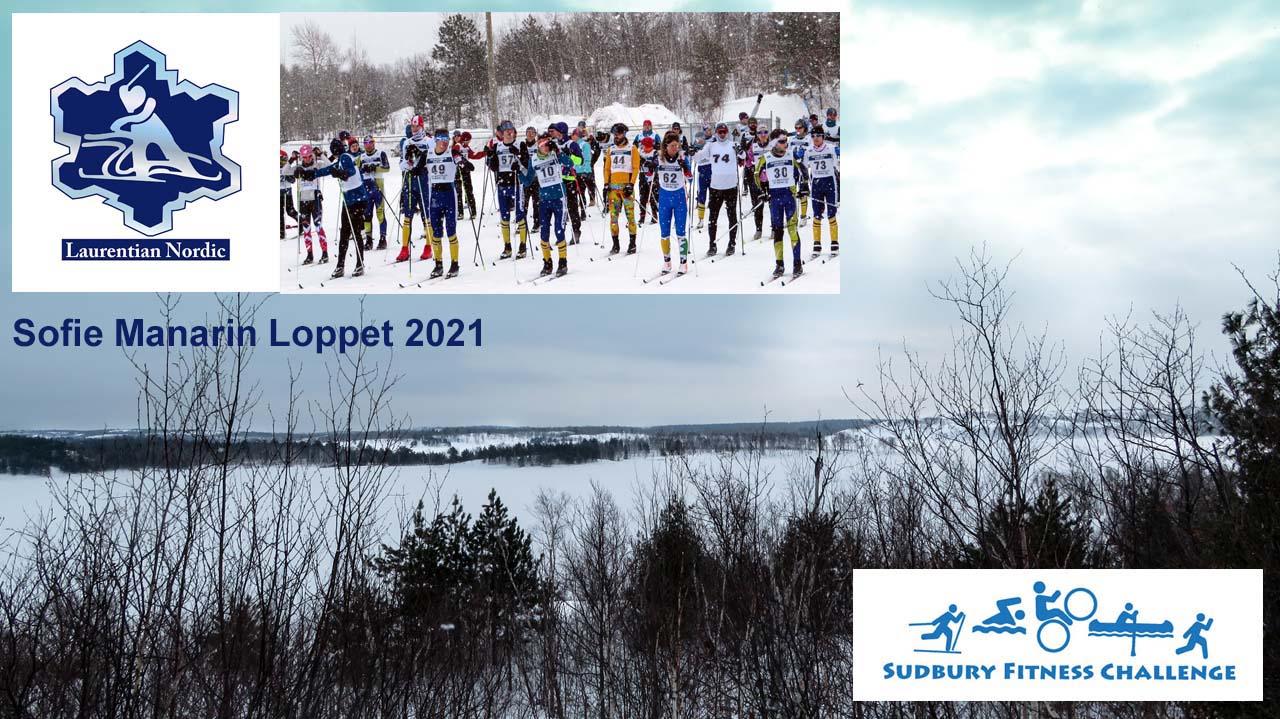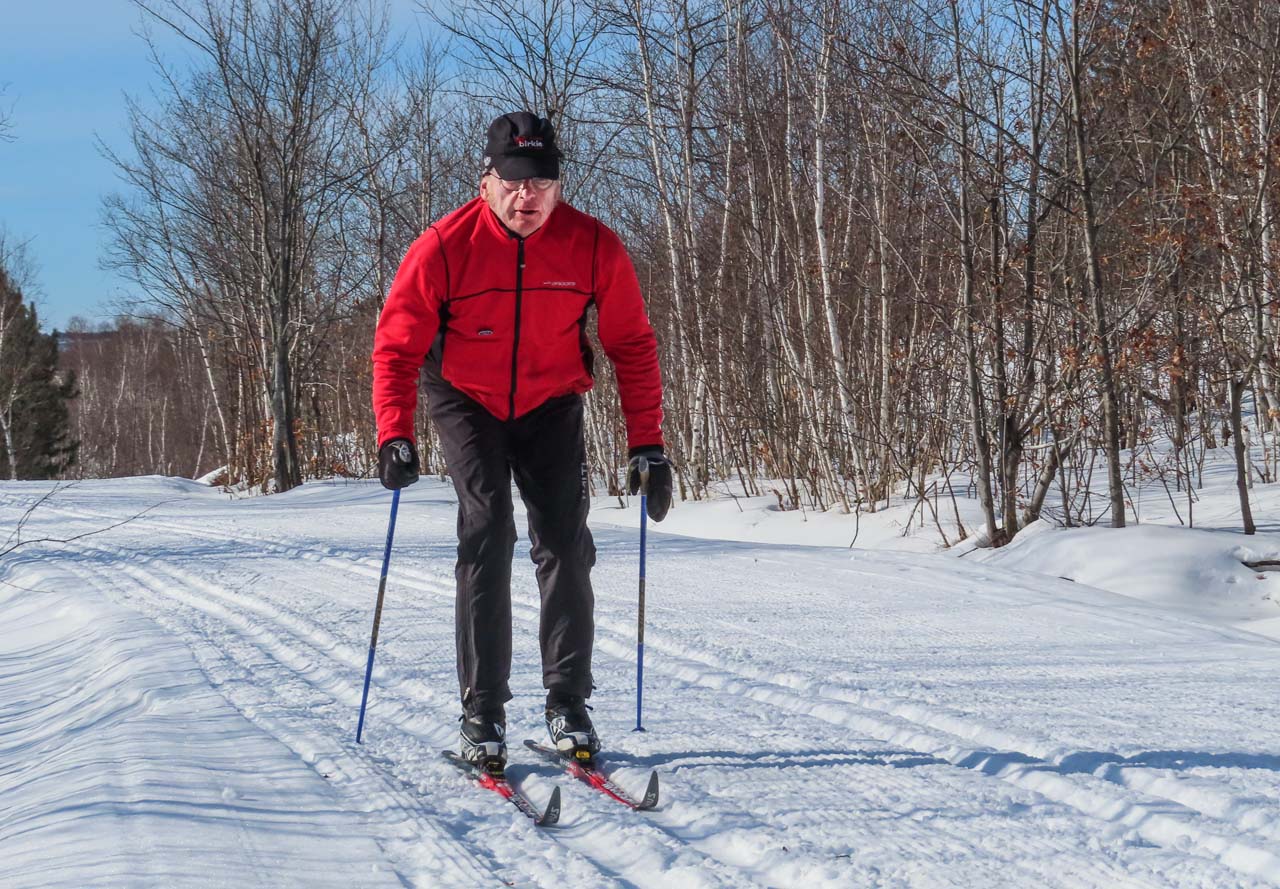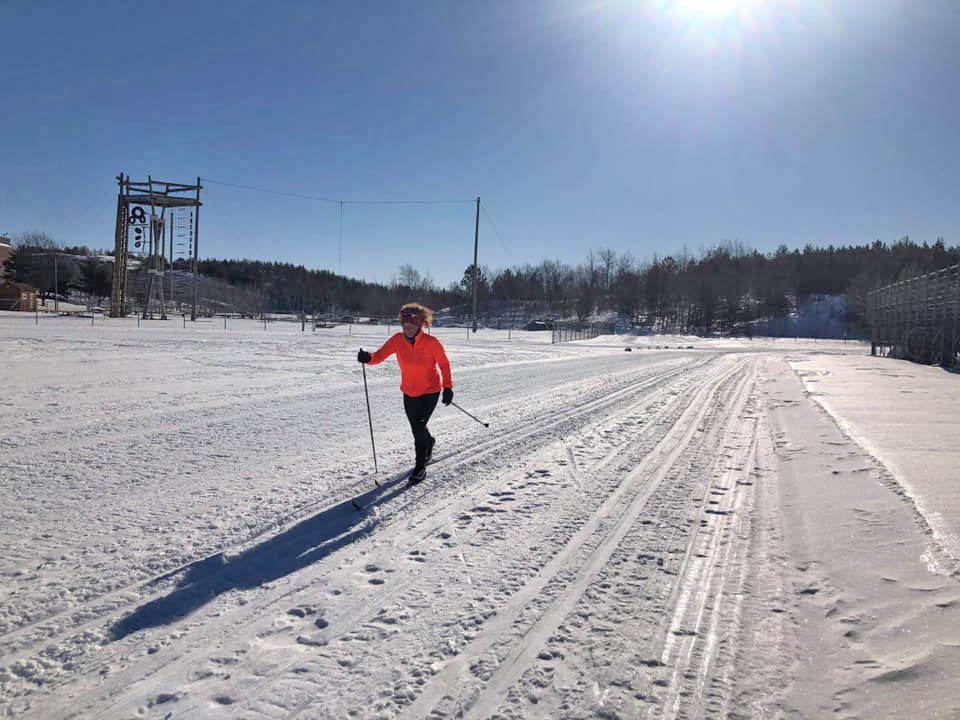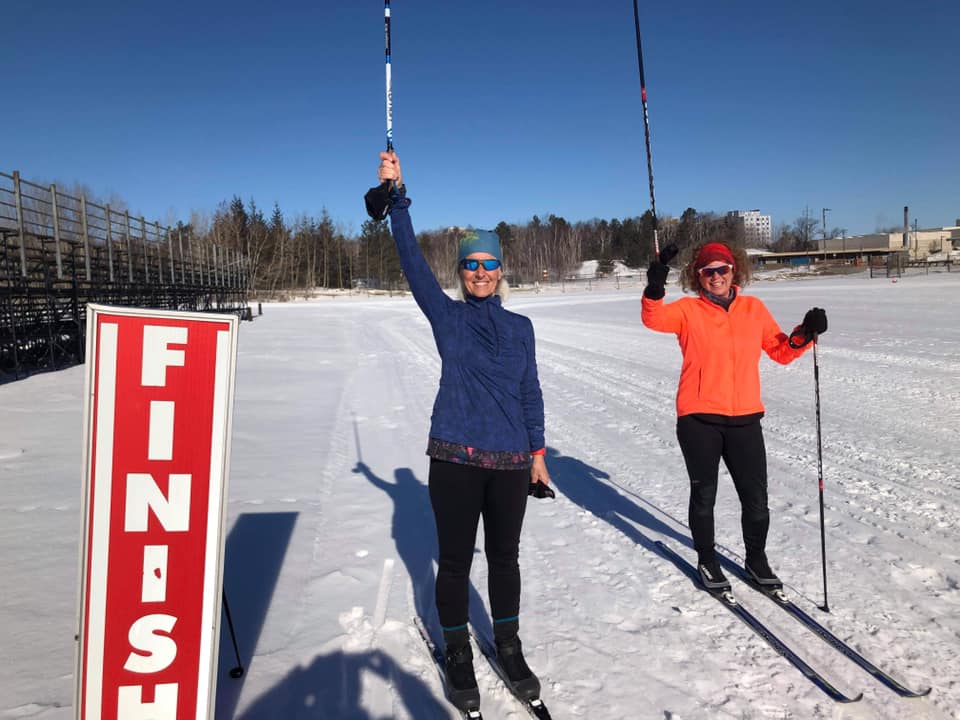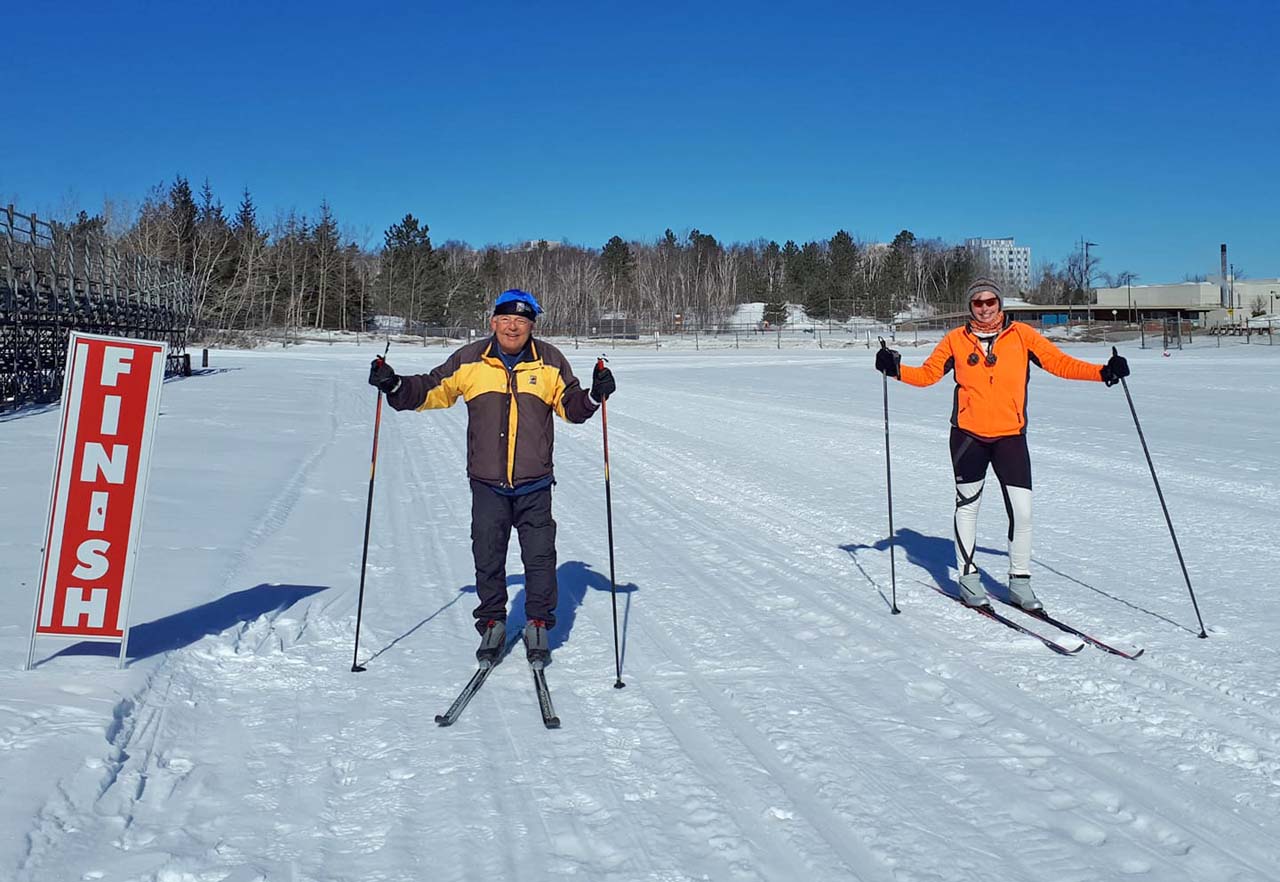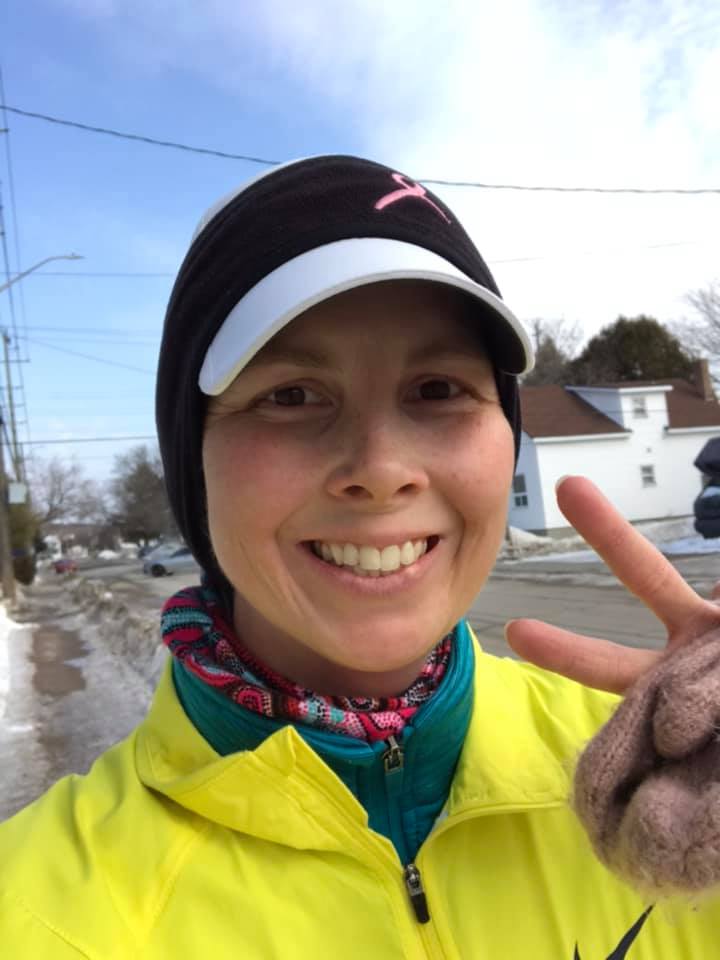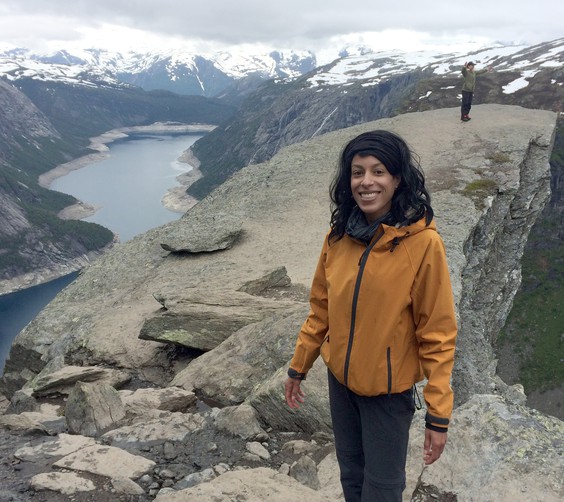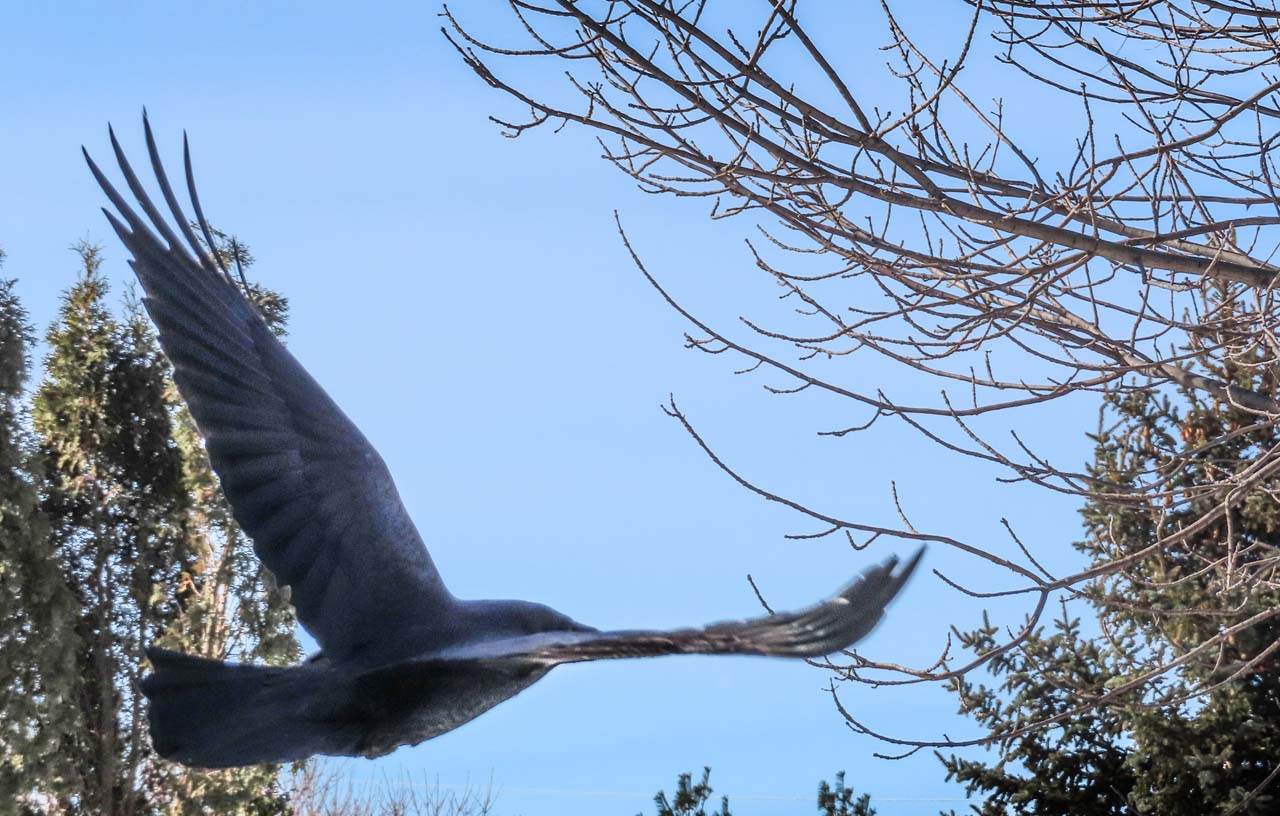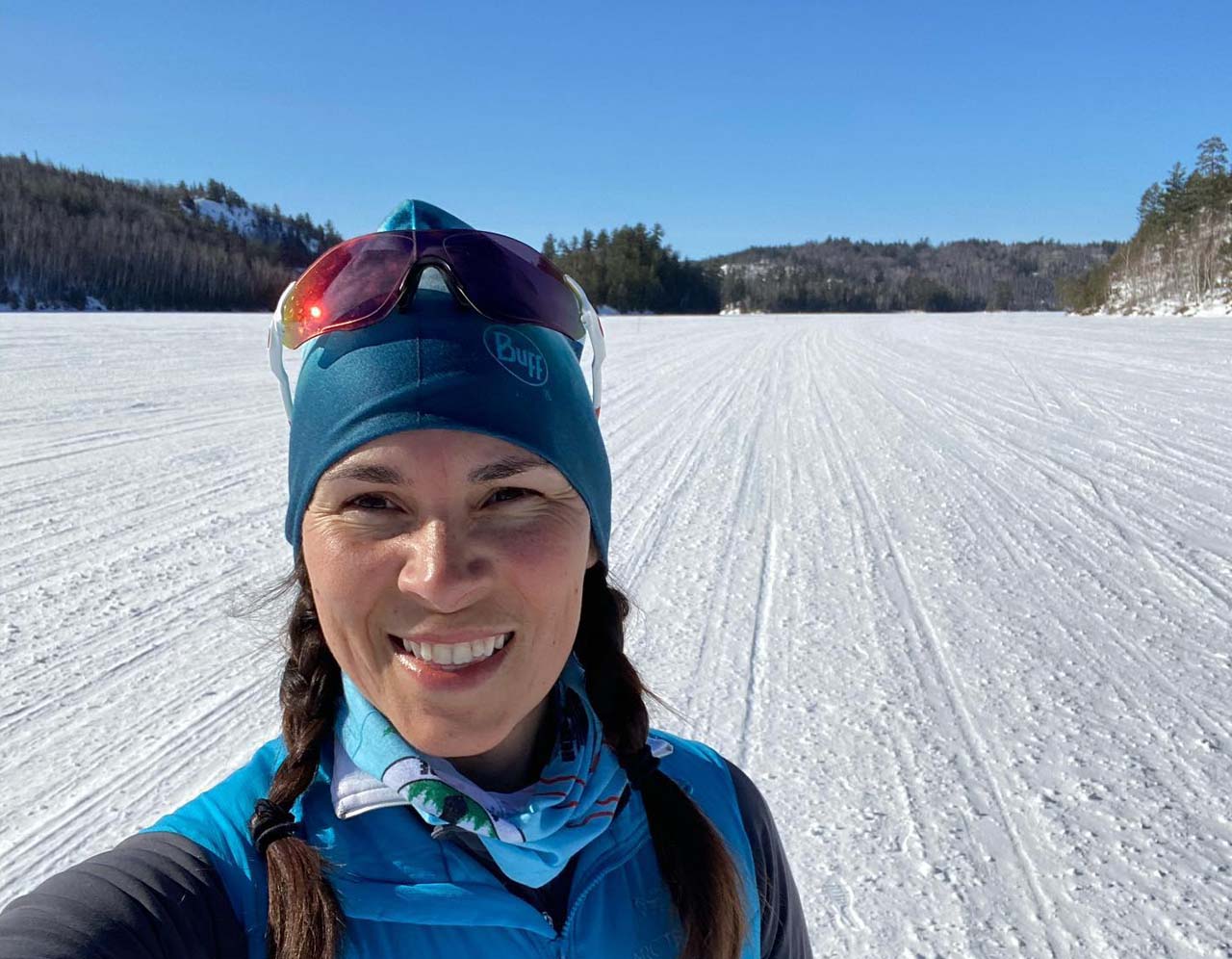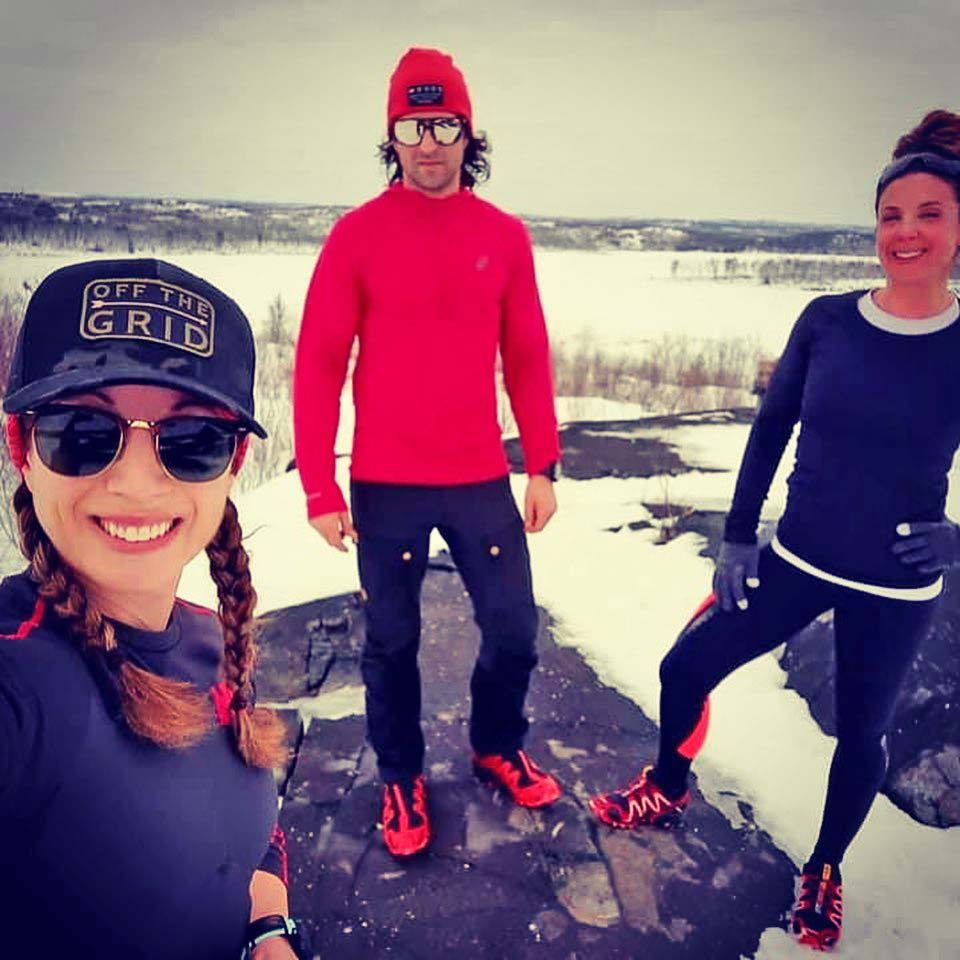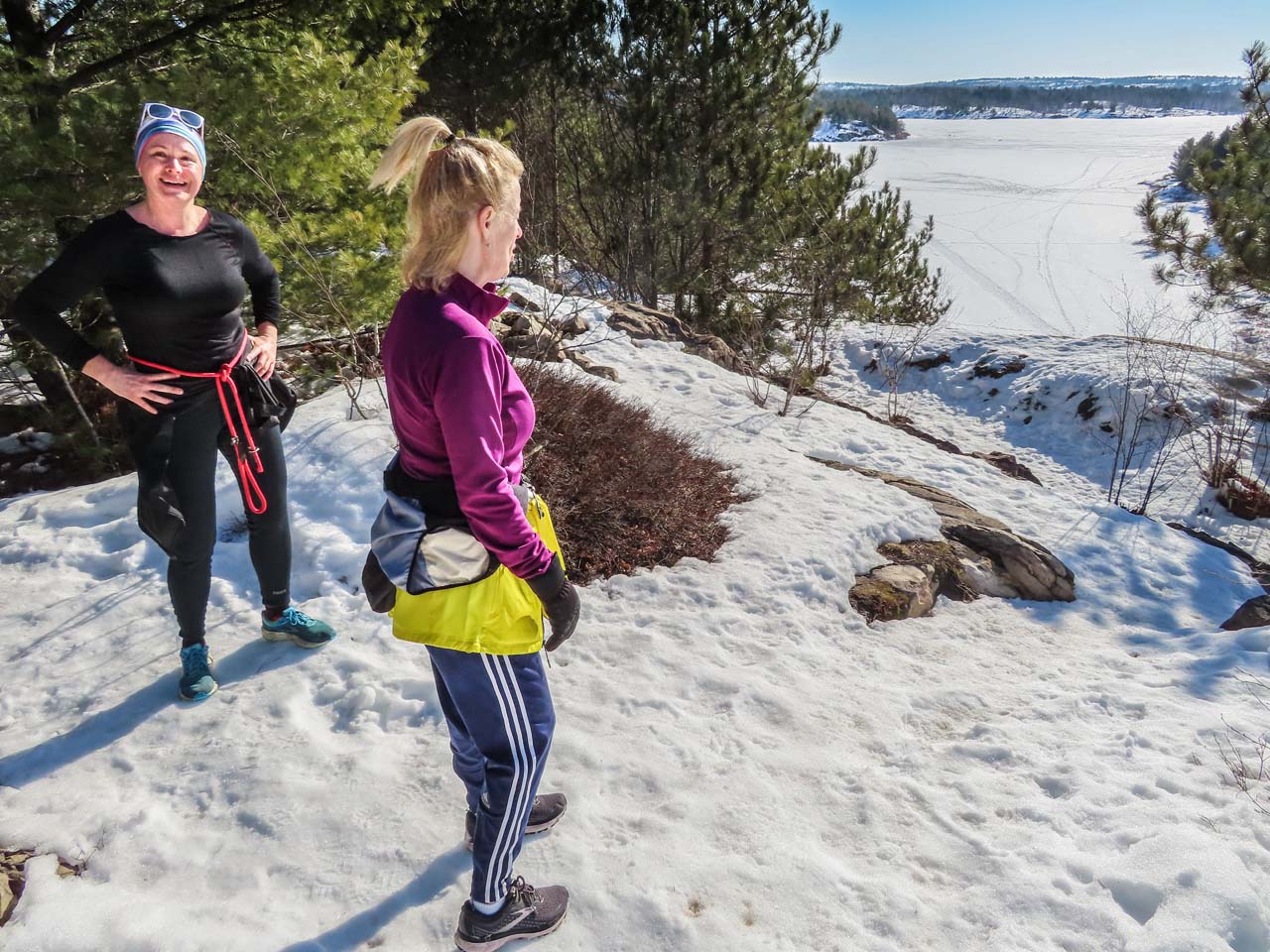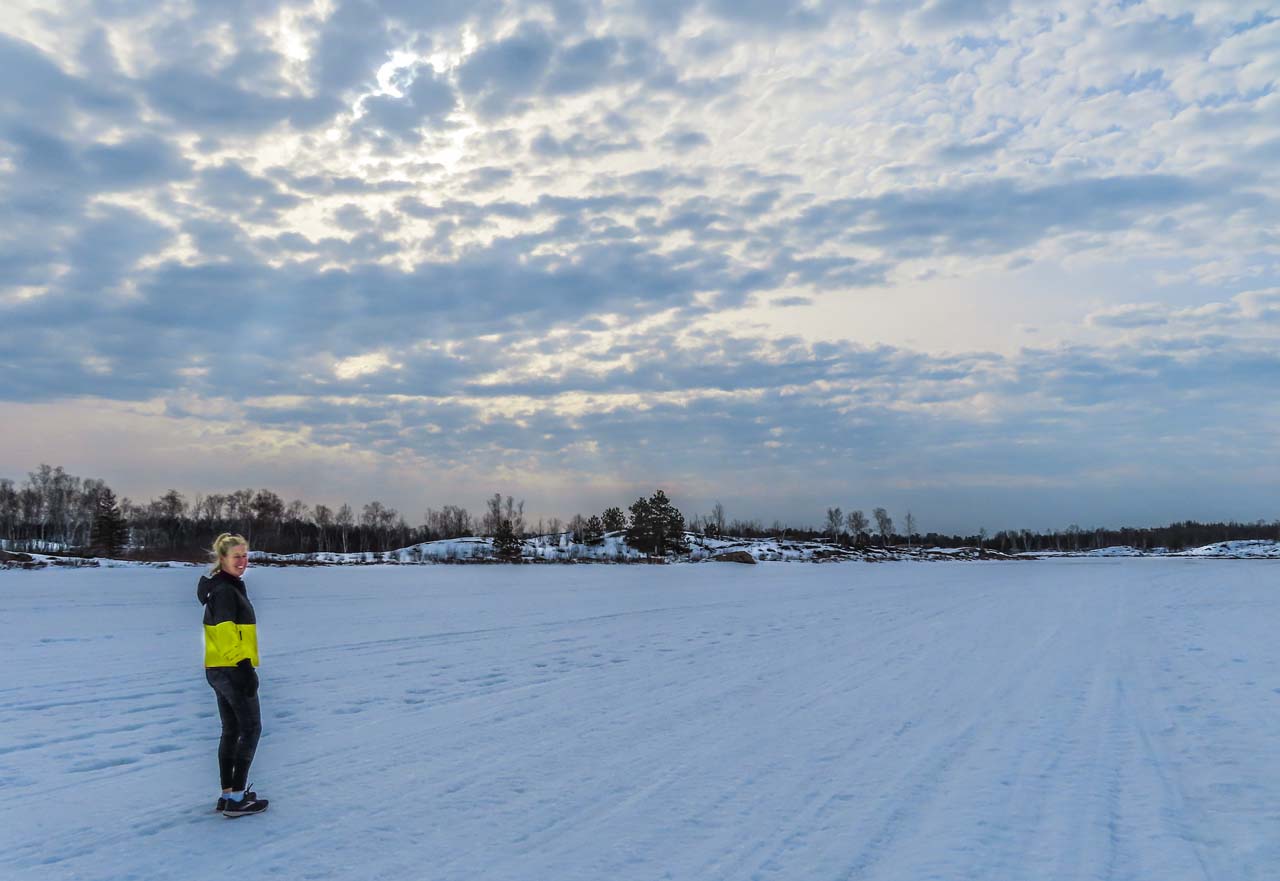Few are the athletes who
can juggle competing with two university varsity sport
programs, simultaneously.
Fewer still are those who
can excel to the point of reaching the podium in at least
one of those two disciplines.
And yet here we are, chatting
with Sudbury native Leila Angrand, now 36 years old and
living in London, looking back on an athletic career that
was highlighted, in part, by a bronze medal performance
at U Sport (then CIS) Cross-Country Championships in November
of 2007.
The fact that this sporting
triumph occurred on the trails was at least somewhat unforeseen
by the high-school version of Angrand, entering grade
nine at College Notre-Dame as a promising young swimmer
with the Laurentian University Swim Club, a passion that
she shared with her older brother, Emmanuel.
“I had done really
well in swimming, growing up, but I was kind of plateauing,
so I transitioned into running,” said Angrand, who
remained competitive enough in the pool to be recruited
to the Laurentian Aqua Vees swim team. “I just liked
running better at that point in my career. I felt like
I had so much more potential to grow.”
As a reasonably accomplished
swimmer, Angrand was blessed with a cardio base that allowed
her to rank among the top local high-school competitors
in either track and field or cross-country during her
senior years at CND. Still, she viewed her involvement
in those sports as far more of a constructive dryland
training component, something that she enjoyed doing,
and that would benefit her ultimate swimming dreams.
Yet top twelve performances
in both of her running disciplines at OFSAA would obviously
garner the attention of LU cross-country coach Dick Moss,
who welcomed the two-sport athlete to his team, even as
she juggled her busy schedule to include some the occasional
twice a day practices with coach Phil Parker and the swim
team.
“When I would do distance
in swimming, that level of endurance didn’t seem
to translate in the same way that it did in running,”
explained Angrand. “When I was running, I felt like
I could run forever. I didn’t feel that way with
swimming. I don’t know if that was the lack of arm
strength or whatever, but it just felt easier for me to
do the distance piece in running and that I wasn’t
pushing and pushing.”
Still barely acclimating
herself to high level distance run training, Angrand would
burst on to the OUA cross-country scene in the fall of
2003, earning a bronze medal at provincial championships
and finishing 8th overall at nationals.
“Starting out my career,
knowing that I hadn’t trained to my full potential
and still being able to achieve what I was able to achieve,
that was a really special time for me,” said Angrand.
“It was exciting. I couldn’t wait to see what
else was to come.”
There was a comfort to running,
an ease that transcended both the physical and spiritual
in the case of the highly academic young woman, a student-athlete
who boasts an undergraduate degree in Sports Psychology
to go along with masters in both Occupational Therapy
and International Health.
“Any time I approached
a race, I kind of loved the fact that I didn’t know
what the outcome would be at the end - but I always felt
confident,” said Angrand. “That level of confidence
was unique, in that it was something that I felt in running,
but not in swimming.”
That was equally apparent
in her results.
Committing full-time to cross-country
and track following her second year at Laurentian, Angrand
would go on to claim a second OUA bronze medal as a member
of the Voyageurs, twice named to the CIS all-star team,
while also adding in a silver medal performance in the
3000m at indoor nationals as well.
Completing her final year
of eligibility while tackling the first year of her masters
at Western, the well-travelled woman, who is anxiously
expecting the birth of her first child this summer with
partner Patrick Danielson, would close the book on her
university career with a podium placement at nationals,
one that would book her ticket to participate in the FISU
cross-country championships.
“I remember when I
was trying to qualify for the World University Games (FISU),
that was probably the race where I left all of my efforts
out there,” said Angrand, referencing the 2007 U
Sport finals. “After the race, I could hardly walk,
I couldn’t even talk. I just really, really wanted
to make that team.”
“ I can’t say
that the same oomph happened at every race,” she
added. “Even then, I loved racing and I would go
with what feels comfortable, but not necessarily that
extra extra edge of some of these other races.”
Like so many other university
runners, the years that followed would create something
of a mixed bag, looking forward to a step away from the
heavy demands of their previous training regimen, all
while never quite losing both the love of the sport and
competition.
“My plan was always
to continue running, to transition to half marathons,
maybe marathons,” she said. “That was always
the mindset - but it didn’t quite happen that way.”
A five year stint in Vancouver offered perhaps a little
more change than Angrand could comfortably integrate,
at least not initially.
“Moving to a new province,
a new city, not knowing anyone, trying to start my career
and wanting to take a break from the really intense training,
well, it was really challenging, a bit overwhelming. I
was having a hard time balancing it all. I didn’t
quite know what I wanted to do with running anymore.”
But living in a runner’s
paradise, a city abounding with running groups, Angrand
would find her way to 5km and 10km races, borne largely
out of her love of running and a desire to stay fit. “Eventually,
I felt that I needed something more than that,”
she said. “I transitioned to mountain running. Vancouver
is the perfect environment for that - there are mountains
everywhere.”
Injuries and life demands,
in general, combined with a series of moves, with stops
in Edmonton, Pembroke and Sudbury, before settling in
London, would account for much of the past decade or so.
From a racing standpoint, her day of reckoning had come.
“I decided, given what
I had achieved in running, that though I needed to continue
doing it, I didn’t need to do it as competitively
as I did before,” summarized Angrand.
Through it all, the talented
athlete with plenty of family on her mom’s side
still living in France had maintained a love of travel.
From spending a year of her elementary education in Europe
to pursuing a second masters degree in Frankfurt (Germany),
Angrand has always tended to draw from sport what she
sees in life.
“Sport has taught me
a lot of things, too long to talk about,” she laughed.
“I think it piqued my interest in international
health. I’ve always loved the multi-cultural aspect
of sport.” Educational journeys included trips from
India to Dubai, from Norway to the United Kingdom, settings
that are all conducive to a leisurely run - even if that
run stems from very simple love of running.
Nothing more, nothing less.
|










219.jpg)


